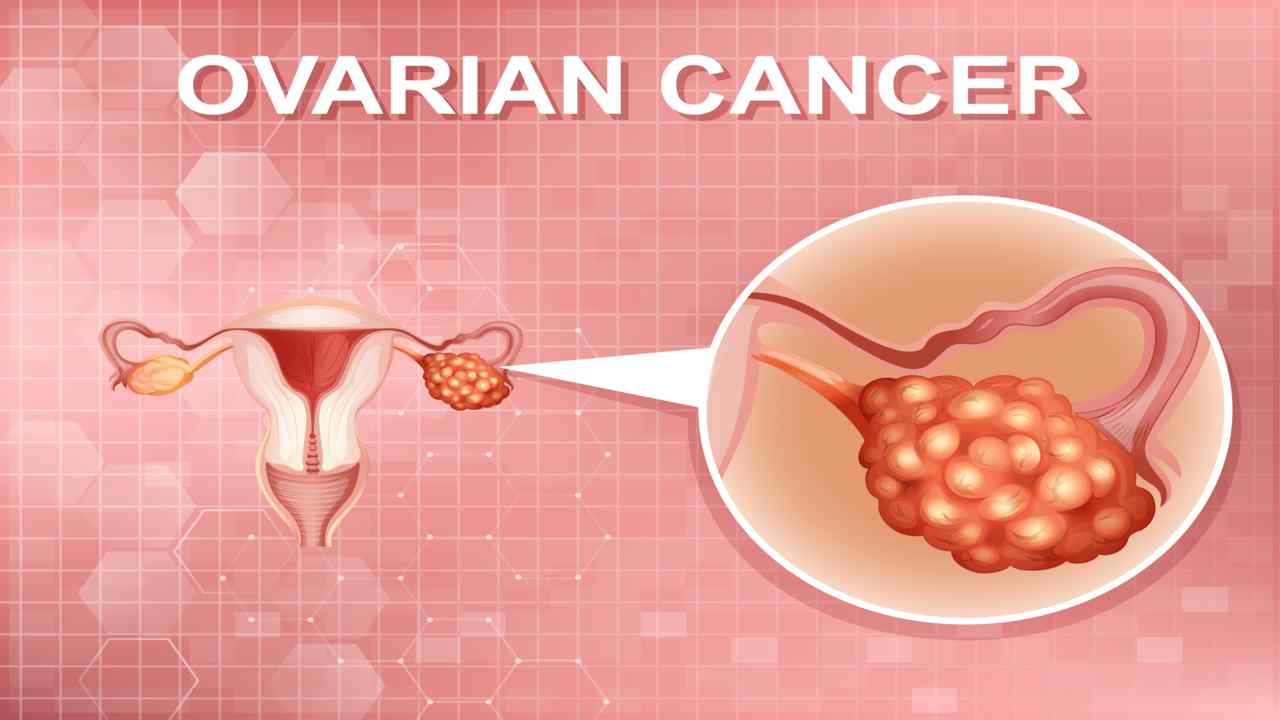As a pediatrician at ONP Hospitals, I’ve witnessed countless stories of resilience and recovery, but one case stands out—little Anaya’s story. Anaya, a spirited four-year-old, came to us after a severe finger injury that happened while she was playing in the backyard....

Overview
The 5-year relative survival rate for women diagnosed with invasive cervical cancer at an early stage is above 90%. Cervical cancer has a 5-year relative survival rate of roughly 68 percent. The rate is based on the total number of cancer stages.
Everything You Need To Know About Cervical Cancer
What is It?
Cervical cancer is a form of cancer that develops in the cells of the cervix, which links the uterus to the vaginal canal. Squamous cell carcinomas and adenocarcinomas are the two most common kinds of cervical cancer. Squamous cell carcinomas account for 80 to 90% of the cases, whereas adenocarcinomas account for 10 to 20%.
Causes
For cervical cancer to form, healthy cells in the cervix must undergo DNA alterations. The instructions that a cell follows are included in its DNA.
At a certain pace, healthy cells proliferate and ultimately die. As a result of mutations, cells continue to grow and replicate uncontrollably. A mass of abnormal cells is formed (tumor). A tumor’s cancerous cells may infect neighboring tissues and then spread (metastasize) to other parts of the body.
HPV has been shown to have a role in the development of cervical cancer. A large number of persons infected with HPV do not go on to get cancer. If you’re at risk of developing cervical cancer, you’ll need to take into account more than just your genetics.
Risk Factors
Many recognized risk factors for cervical cancer may be connected to the condition. Some risks can be avoided, while others cannot. Consider the following as potential dangers:
- An irregular screening history: Cervical cancer is more common in women who haven’t had frequent Pap tests (smears).
- HPV Infection: In certain cases, the cervix may be infected by the human papillomavirus (HPV). Cervical cancer is mostly linked to HPV infection in the cervix. A tiny number of women who are infected with HPV and do not get treatment may develop cervical cancer, though.
- Sexual History: Cervical cancer is more likely to strike women under the age of 16 who have had several sexual partners or who have had a history of early sexual activity. Cervical cancer may be prevented by preventing sexually transmitted illnesses.
- Smoking: Cigarette smoking raises the risk of cervical cancer.
- HIV Infection: Cervical cancer is more common in women who have been infected with HIV.
Symptoms
When cervical cancer is advanced, you may not notice any signs at all. There are several possibilities:
- When you’re having sex, it hurts.
- After intercourse, between cycles, after menopause, or after a pelvic exam, abnormal vaginal bleeding may occur
- Abnormal vaginal discharge
Cancer that has spread may cause:
- Pelvic ache
- Trouble urinating
- Swollen legs
- Kidney ailment
- Bone ache
- Loss of appetite and weight loss
- Fatigue
Prevention
As a preventative measure, you can:
- Ask your doctor about the HPV vaccine: Cervical cancer and other HPV-related malignancies may be reduced if you get a vaccine against HPV infection. Consult with your doctor to see whether you should get an HPV vaccination.
- Have routine Pap tests: Precancerous abnormalities in the cervix may be detected by Pap tests, which can then be monitored or treated to avoid cervical cancer. Routine Pap tests should begin at the age of 21 and be repeated every few years, according to most medical organizations.
- Practice safe sex: Use a condom at all times and limit the number of sexual partners you have to reduce your risk of cervical cancer.
- Don’t smoke: Stop smoking if you don’t already. Inquire with your doctor about the best way to quit smoking.
Treatments
Invasive cervical cancer is often treated with surgery and radiation therapy. Other treatments include chemotherapy and biological therapies.
- Surgery
With treatments like LEEP or cold knife conization, your doctor may remove or eliminate the malignant cells on the surface of your cervix.
To remove malignant cells from the basement membrane, you’ll need to undergo a hysterectomy, which is a kind of hysterectomy. Your cervix may be surgically removed if the illness has gotten into the cervix’s deeper layers but has not spread elsewhere in your body.
Your doctor may recommend a hysterectomy if cancer has progressed to your uterus.
- Radiation Therapy
High-energy rays are used in radiation treatment (also known as radiotherapy) to destroy cancer cells and prevent their proliferation. Radiation only affects cancer cells in the targeted location, like surgery. Depending on the nature of your therapy, it may be either external or internal.
- Chemotherapy
Drugs like chemotherapy are used to destroy cancer cells. Cervical cancer that is locally progressed or has spread to other regions of the body is often treated using this method.
There are times of intense treatment followed by intervals of recuperation in chemotherapy. At an outpatient clinic at the hospital, at your doctor’s office, or even in your house, most people get it.
- Immunotherapy
To trigger an immune response, biological treatment or immunotherapy focuses on the checkpoints in your immune cells. Tumors may be reduced or slowed in growth with the use of a drug called pembrolizumab.
If chemo isn’t working or cancer has spread, doctors use it. Every three weeks, you’ll be given intravenous, or IV, medication.
Conclusion
For cervical cancer, the death rate has decreased significantly. It was formerly the most deadly cancer for women but currently ranks 14th. Early detection and prevention are the foundation of this extraordinary success story.
Sub Services
What Patient has to say about us
People heavily rely on reviews from other patients when choosing a healthcare provider
Our Patients Many many happy returns of the day......... The best doctor in the world My mother was suffering from severe pain in both knees and spine. Dr. Aashish arbat sir has operated today after 15days she is doing every thing thank you Dr aashish arbat sir and team Especially the major support was from Dr Ram sir from admission to dischatge and follow ups and taken care very nicely thanku Dr. Ram sir Our Patients After enduring knee pain for the past decade, my mother sought advice from various doctors in Nagpur, Nashik, and Pune. They all recommended knee replacement surgery, but it was only when we discovered Dr. Aashish Arbat and the option of robotics surgery that we made the decision to proceed. The surgery took place on June 23, 2023, and it turned out to be an incredible experience. To our astonishment, on the morning of June 24, my mother was able to stand on her own legs and even take a few steps. This remarkable progress was made possible due to the advanced assistance of robotics arm and Artificial Intelligence. Dr. Aashish Arbat is an exceptional and highly experienced surgeon, and we are immensely grateful for his expertise. We also extend our appreciation to his colleagues, Dr. Sharma and Dr. Ram, for their excellent skills and compassionate nature. Our heartfelt thanks go out to the entire team for enabling my mother to live a pain-free life Our Patients My mother got her both robotic knee replacement from sir on Oct 2021. The team and sir have made the complete process seamless. Especially my mother was very comfortable post her surgery. Thank you Dr Arbat and team. Our Patients Our Patients Our Patients Hello. My wife has severe arthritis in her body knees since 2017. We communicated many doctors but she was not happy. We visited Dr arbat for same issue and he came up with robotic knee replacement solution which suited her accurately and she is walking 5-6km daily without hesitation and living comfortably. Thanks Dr. Aashish Arbat and his new technology.![]()
Chhaya Kate
![]()
pravin kharat
![]()
T Srivalli
![]()
Mohan Satavekar
![]()
VIVEK PANDEY
![]()
Subhash Bobade
Blogs
Addressing Childhood Obesity: Preventative Measures and Healthy Lifestyle Choices
Childhood obesity is growing concern. More kids are affected every year. Tackling this issue early is crucial. This ensures children grow up healthy and happy. Fortunately, there...
Healthy Sleep Habits for Children: Tips for Parents
Good sleep is essential for children’s health and development. Yet getting kids to sleep can sometimes feel like an uphill battle. Establishing healthy sleep habits early on sets...
The Role of Diet and Nutrition in Managing Encopresis in Children: Insights from Dr. Amita Phadnis
Encopresis, a condition characterized by involuntary soiling in children, can be distressing for both the child and their family. First and foremost, complete treatment of...
Videos
Dr. Amita Phadnis’s Full Speech on Survival & Health Rights at UNICEF India.
Dr. Amita Phadnis ,M.D., Gave a Motivating Speech
Breast cancer is cancer that forms in breast cells. Women are mostly diagnosed with this cancer. Although it can be seen in both men and women
What is AMH
The granulosa cells in your ovarian follicles create the anti-Mullerian hormone, often known as AMH. According to the American College of Obstetricians and Gynecologists (ACOG), the generation of AMH is a reflection of your ovarian reserve.
FAQ’s
Pregnancy and Migraine Headaches: What Women Need to Know
When you are pregnant or breastfeeding, then you should be aware that migraine headaches are a normal part of the journey. Pregnant women might feel headaches owing to...
What Is the Problem of Orthopedics in Children?
While orthopaedic problems are commonly seen in and associated with the elderly, it’s important to be alert regarding the fact that they can afflict young people and children as well.
All You Need to Know About Reproduction
Most science students have to study about reproduction in their high school syllabus, and some learn from their parents, who may discuss it even earlier. It’s a very good thing to know about our own bodies…
Explore All Departments

ONP Prime

ONP Leela

IVF

Oncology

Pediatrics

Urology

Neonatology

Ophthalmology

Orthopedics

Gynaecology

Cardiology

IVF

Oncology

Pediatrics

Urology

Neonatology

Ophthalmology





 Home
Home Gynecology
Gynecology






